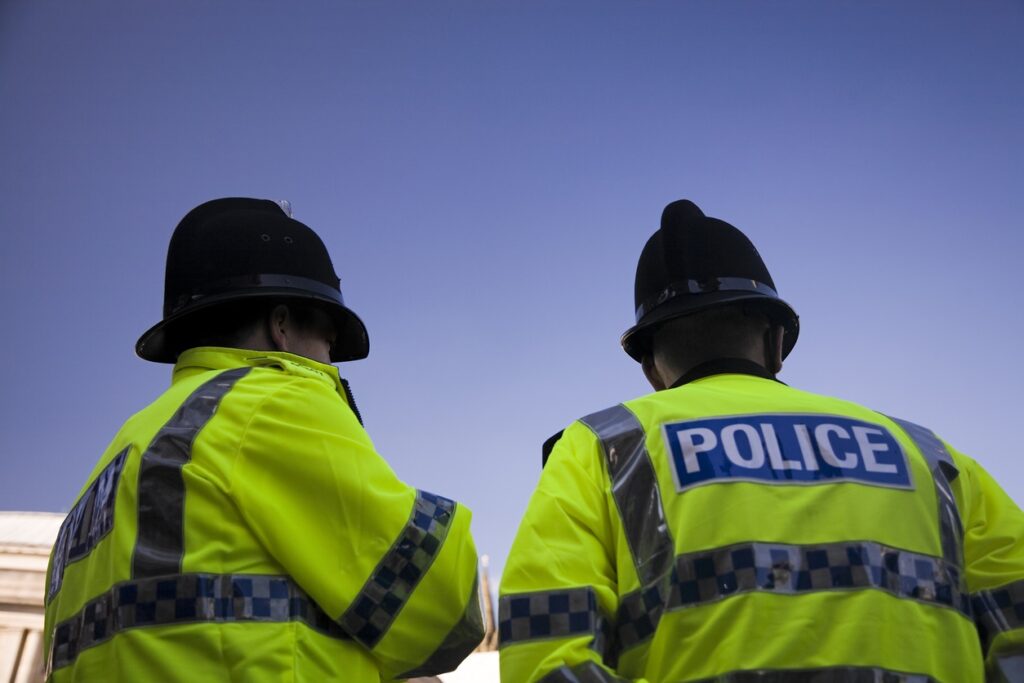Emergency legislation passed by Parliament has given the police wide-ranging new powers to help tackle the Coronavirus pandemic. These powers are geared towards enforcing the government’s social distancing measures which are designed to keep people apart in order to halt the spread of the virus. The Health Protection (Coronavirus, Restrictions) (England) Regulations 2020 (“the Regulations”) represent an enormous increase in state power, and some police forces have been particularly heavy-handed in their adoption of the new measures.
To ensure that people stay at home and avoid non-essential travel, the police may:
- Instruct people to go home, leave an area or disperse;
- Ensure parents are taking the necessary steps to prevent their children from breaking the rules;
- Issue a fixed penalty notice of £60; and
- Issue a fixed penalty notice of £120, for repeat offenders. This figure will double on each further repeat offence (up to a maximum of £960).
If an individual continues to refuse to comply, the police may arrest them where it is deemed proportionate and necessary to do so. Anyone who fails to pay a fixed penalty notice may be landed with an unlimited fine upon conviction in a magistrates’ court.
Have the police been overzealous?
Lord Sumption, a former Supreme Court justice, heavily criticised Derbyshire Police this week for stopping people from taking exercise in the Peak District. Such behaviour, said Lord Sumption, risks Britain becoming “a police state” with officers implementing “ministers’ wishes” rather than the law.
Over the weekend, police in Buxton dyed the famous ‘blue lagoon’ beauty spot black in an attempt to deter sightseers. The action was taken after the police received reports that visitors were congregating at the spot during the national lockdown.
Derbyshire police released a video via social media which was taken using a drone. The video shames members of the public for walking their dogs, taking photos of the scenery and exercising in isolation. Nobody captured by this drone footage was breaking the law. The government has said that people can leave their homes to take a daily form of exercise (provided that this exercise does not exceed one hour and that social distancing measures are maintained).
Warrington police have summonsed people for going out for a drive “due to boredom”, and for travelling to the shops with members of the same household to purchase “non-essential items”. The legislation does not prohibit people from the same household going shopping together, and Michael Gove has previously said that it was “unlikely” that the police would be stopping people from going for a drive.
Devon and Cornwall police have asked the public to report “illegal gatherings” to them, and the Metropolitan police are asking those using the London Underground to justify their journeys.
Marie Dinou was arrested at Newcastle Central Station last weekend, having allegedly failed to inform the police of the reason for her journey. She was detained under Schedule 21 to the Coronavirus Act 2020 (“the Act”), which creates an offence of “failing without reasonable excuse to comply with any direction […] imposed”. Crucially, the Act only applies to “potentially infectious persons”. The police admitted that they did not consider Ms Dinou to be suffering from the virus, and nor did they think she was potentially infectious. Despite this, Ms Dinou was convicted at North Tyneside Magistrates’ Court and fined £660.
Following a review by the CPS, it was established that Ms Dinou was charged under the incorrect section of the Act. Her conviction was quashed and the police admitted that “it shouldn’t have happened”.
Civil liberties
The actions of the police raise a number of concerns with regards to their compatibility with the European Convention on Human Rights (“ECHR”) and the Human Rights Act 1998 (“HRA”). Under Section 6 HRA, it is unlawful for public authorities to act in a way that is incompatible with the Convention. Article 5 ECHR provides that “everyone has the right to liberty”. Police powers to detain and isolate potentially infectious persons and impose restrictions on their movement may interfere with rights under Article 5.
The new emergency legislation was rushed through Parliament in order to protect the public and it is vital that the police’s new powers should only be used as far is reasonable, proportionate and pursuant to the legitimate aim of the protection of public health. This week, the College of Policing and the National Police Chiefs’ Council implored police officers to adopt a “common sense” approach.
Over-zealous and unlawful enforcement is likely to hamper the fight against coronavirus. Those with poor mental health are likely to suffer more acutely in the current climate, and – should they be arrested – their unnecessary criminalisation will only compound their problems further. Question marks have been raised over whether or not the police will use their common sense when enforcing the lockdown. In the absence of further, clearer guidance, it remains to be seen whether the police will continue to act in contravention of basic human rights and civil liberties.
If you would like to discuss any of the issues above with our criminal law solicitors, please do not hesitate to get in touch
